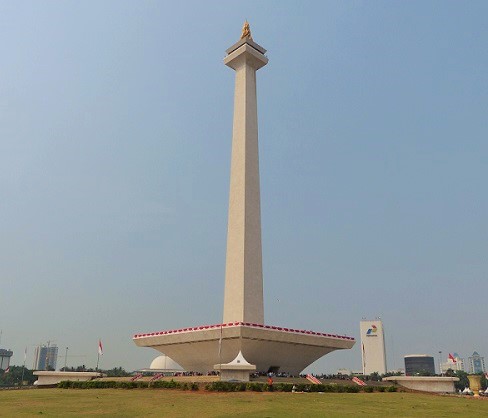Political Update: Pact Awesome Indonesia & Red-White Coalitions
Tensions within Indonesian parliament may have eased after the two opposing coalitions signed a limited power-sharing pact on Monday (17/11) after weeks of negotiations. This pact is expected to reinforce investor confidence in Indonesian politics amid improved political certainty. Previously, parliament was divided into two rival coalitions: the Awesome Indonesia Coalition (Koalisi Indonesia Hebat), which backs Indonesian President Joko Widodo, and the Red-White Coalition (Koalisi Merah-Putih), which is led by Prabowo Subianto.

Controversial former army general Prabowo Subianto was defeated in the July presidential election by Widodo but initially declined to accept the defeat. Rather than acceptance, Subianto tried to reverse the election result through a Constitutional Court case (which he lost as well). Prior to the official presidential result, he had formed a coalition (labelled the Red-White Coalition in reference to the colours of the Indonesian flag) controlling the majority of seats in the parliament of Indonesia (also known as the House of Representatives or People's Representative Council) based on the April 2014 legislative election result. Seemingly unable to accept his defeat in the presidential election, concerns rose that Subianto would use this majority-coalition to oppose all reforms of Widodo for the sake of opposition, thus jeopardizing economic and social development of Indonesia. These concerns heightened when the Red-White Coalition succeeded to pass a new law in parliament (in September 2014) that abolishes direct elections in the regions (leaving it to regional legislatures to elect mayors, district heads and governors). This law is considered a setback for the development of democracy in Indonesia and opens up opportunities for corrupt practises in local elections. The passing of the law was regarded as an act of revenge by Subianto as Widodo (the first Indonesian president who does not originate from the country’s traditional political or military elite) was able to rise through the political ranks in Southeast Asia’s largest economy due to these direct elections.
Another development that triggered heightened concerns was that the Red-White Coalition was able to control all leadership positions in Indonesian as well as the People's Consultative Assembly (Majelis Permusyawaratan Rakyat, MPR).
However, in recent weeks there have been more and more signs that both coalitions can put aside their differences. After the signing of the new pact, Indonesia’s House Speaker Setya Novanto uttered the soothing words that Indonesia has no more opposing coalitions in parliament (however Indonesia Investments still expects to see both coalitions battle for power in the time ahead). The new pact implies that the Red-White Coalition will give some concessions to the Awesome Indonesia Coalition. The Red-White Coalition agrees that an additional Deputy Chairman (someone from within the Awesome Indonesia Coalition) will be appointed to all 11 legislative commissions and five special committees in parliament. In exchange, Widodo’s coalition will drop its demands for a revote regarding the leadership positions in the DPR and MPR. As a result of the new structure, Indonesian parliament will need to amend the Law on Legislative Bodies (MD3). This matter will be discussed in parliament on Tuesday (18/11).

